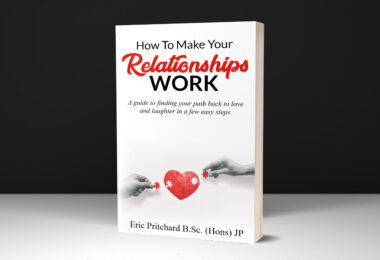Starting a family is a big step for any couple. Keep your sex-life on track with expert advice from therapist Denise Knowles.
Sex is quite often the first thing to fall off the radar, but you don’t need to panic if you’re not sleeping together as much as you once did. Sex and intimacy are still important parts of any relationship though, so talking things through and finding compromises that suit your new situation are crucial.
A new chapter
Pregnancy can cause a real shift in a couple’s sex life, and it’s totally normal for both men and women to experience changes in their sex-drives during this time. Hormones, concerns about the baby and changes in normal routine can all make a difference to sex-drive and it’s important to give yourselves time to adjust to this new chapter.
Once the baby arrives, sleepless nights can also play havoc with a good sex-life, tiredness can cause tolerance levels to drop and you can become tetchy with one another, which is not conducive to enjoying sex together.
It can be difficult for couples when their sex-drives are mismatched, but it’s important to remember that it’s likely to be temporary. Try to give each other time and space to adjust and don’t put pressure on each other to have the same sex-life as you did before pregnancy.
It’s also important to be honest about how you’re feeling – if your sex-drive is lower than your partner’s, make it clear that it’s not a reflection of your feelings towards them. Equally, if your sex-drive is higher than theirs, explain that sex is still important for you and be open to listening to their concerns.
Denise’s top tips for keeping your sex-life on track
Talk about it outside the bedroom so it doesn’t feel like the pressure is on to have sex right now.
Try different times of the day. Sleepless nights can be a real issue for new parents, so feel free to get frisky in the afternoons or early mornings.
You don’t always have to have sex to feel intimate with one another. Remember that pregnancy and labour can put a strain on your partner, both physically and mentally. It’s a good idea to take this period of adjustment to do more cuddling, hugging, stroking and kissing. Take a warm bath together, or give each other massages – the important thing is that you stay connected.
Make time to do things together – some couples talk best when they’re doing something, rather than having a specific conversation about their relationship. So make time to watch a film together, have a meal or go for a walk.
Listen to your partner – encourage them to share their thoughts and feelings with you. This may take time and even feel rather uncomfortable, but it’s important not to make assumptions about how your partner is thinking and feeling.
It’s not a reflection on your relationship – sex might not be top of your list right now, but it won’t hurt to explain to each other that it’s not a reflection of how you’re feeling about the relationship. You are both going through a huge change and being open and honest about the stresses you’re facing is important.
Remember all the different things you love about them – think about what made you fall in love with each other. Sure, the sex may have been frequent and amazing early on, but what other qualities did you fall for? Times may have changed and you have extra responsibilities now, but you’re still the same people you were in those early days.
For more information and advice visit relate.org.uk. Relate champions the importance of strong and healthy relationships as the basis of a thriving society, providing impartial and non-judgmental support for people of all ages, at all stages of couple, family and social relationships.


![[Image - Splitshire]](https://www.fqmagazine.co.uk/wp-content/uploads/2016/01/cfee1df0aef1bf88281266898fc4ff19.jpg)





